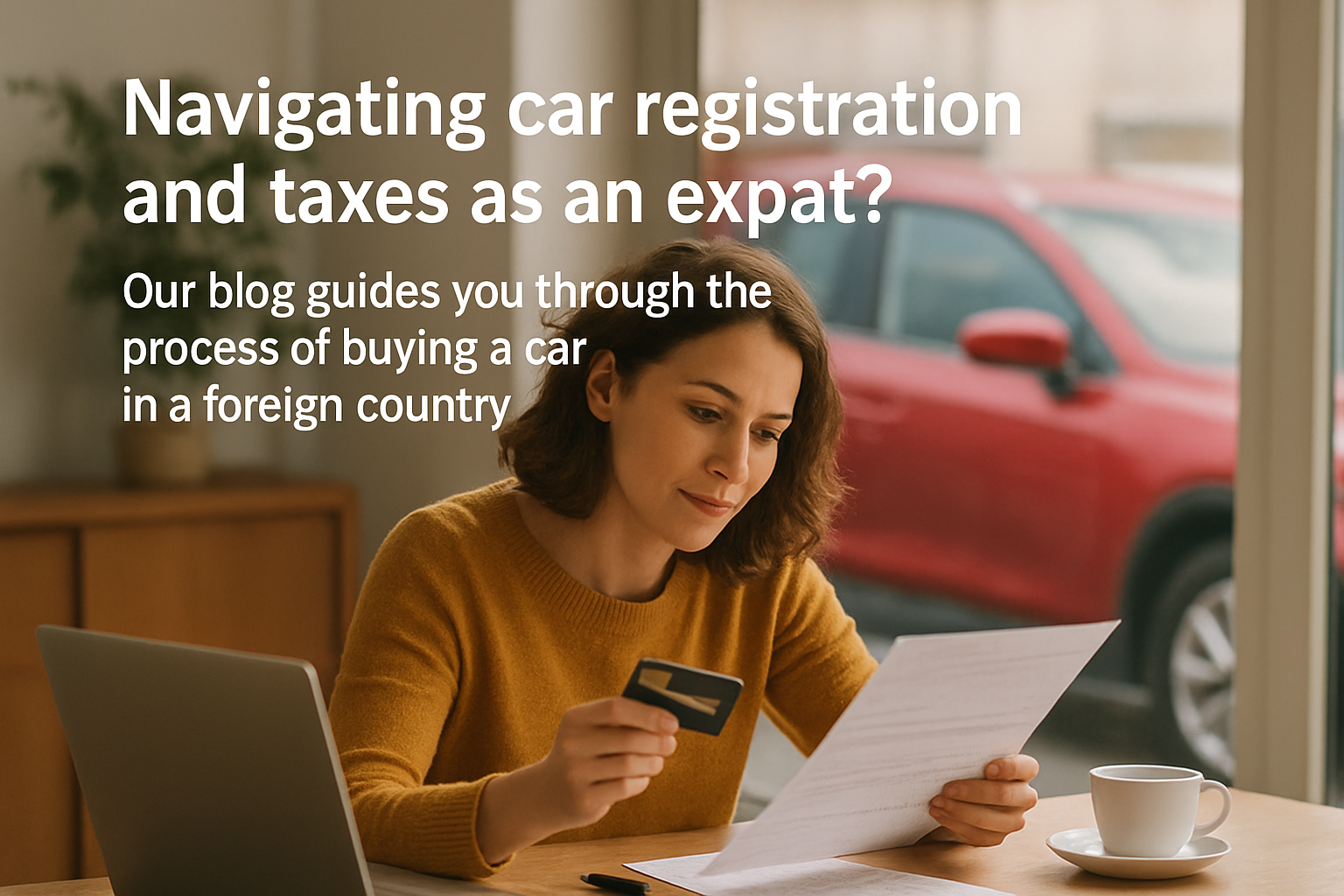Buying a Car: Registration and Taxes for Expats

Moving to Turkey brings many practical questions. One of the biggest: how do you buy, register, and pay taxes on a car as an expat? Modern expats face time pressure, language differences, and changing legal rules. This guide breaks the process into clear steps so you avoid mistakes, save money, and get on the road faster.
1. Before you buy: documents, residency and budgeting
Start by confirming your legal status and finances. You need the right documents to complete a sale and register a car in Turkey.
- Turkish tax number (Vergi numarası) — you must obtain this at any tax office. Banks and notaries require it.
- Passport and valid residence permit or a legal reason for your stay.
- Proof of address — the address you use when you apply for the tax number or your residence permit details.
- Funds to cover purchase price, compulsory insurance, registration fees, and ongoing taxes like the Motor Vehicle Tax (MTV).
Example: Anna arrives from Germany and gets a tax number on her first week. She uses that number at the dealership and avoids delays when registering the car.
2. Taxes and fees you will encounter
Taxes add a noticeable amount to the purchase price. Learn which ones apply to new and used cars so you can budget correctly.
- Special Consumption Tax (ÖTV) — applies mainly to new cars and some imports. The rate depends on engine size and vehicle value.
- Value Added Tax (KDV) — usually applies on the final sale price for dealers and in some import scenarios.
- Motor Vehicle Tax (MTV) — an annual road tax that depends on engine size, vehicle age, and type.
- Registration and transfer fees — notary costs and traffic registration office charges when you transfer ownership.
Benefit: knowing these categories helps you compare offers. For example, a dealer price for a new car already includes ÖTV and KDV. A private sale between individuals may not include KDV, but you still pay registration fees.
3. Step-by-step registration process
Follow these steps to register a car quickly and avoid repeated trips to offices.
Step 1: Secure compulsory traffic insurance (Zorunlu Trafik Sigortası). You cannot register a vehicle without it.
Step 2: Complete the sales contract. Dealers prepare it; private sellers often sign a notarized contract at a Noter.
Step 3: Visit the Traffic Registration Office (Trafik Tescil) with documents: passport, residence permit, tax number, insurance, sales contract, and vehicle documents (ruhsat).
Step 4: Pay the transfer and registration fees. The office issues the registration document and assigns plates if needed.
Example: Mehmet buys a second-hand car from a private seller. They go to the notary together, sign the contract, then Mehmet takes the notarized contract to the traffic office with his insurance and tax number. He leaves with the new registration document the same day.
4. Importing a car versus buying locally
You can bring a car from abroad or buy in Turkey. Each option delivers different tax and administrative consequences.
- Temporary import: You can bring a car temporarily without full customs duties if you do not register the car in Turkey for long periods. Check time limits and conditions.
- Permanent import: You must clear customs, and you’ll face ÖTV, KDV, and customs duties. Authorities require clear proof of long-term residency in some cases.
- Buying locally: You avoid customs steps and usually complete registration faster. Dealers and local sellers handle much of the paperwork.
Benefit: importing might save money if you own a low-tax vehicle back home, but registration and taxes can offset savings. Evaluate total cost and time before you ship a car.
5. Practical tips, common pitfalls and quick checklist
Use this checklist to speed up the process and avoid fines.
- Get your Turkish tax number before you make any purchase.
- Buy compulsory traffic insurance first; shops and dealers can issue it quickly.
- Ask for a notary sale contract in private sales to prevent ownership disputes.
- Confirm vehicle inspection (TÜVTÜRK) status for used cars. Vehicles over a certain age require regular inspections.
- Keep digital and printed copies of all documents. Authorities sometimes ask for originals and copies.
Common pitfall: buyers assume dealers always handle registration. Dealers often help, but you must still present your tax number and insurance. Another pitfall: ignoring annual MTV payments. Missing payments triggers fines and prevents you from selling later.
Example: Lisa fast-tracks registration by booking insurance while the seller prepares the notary contract. She completes registration in one morning and avoids a week of back-and-forth.
Final takeaway: prepare documents, learn which taxes apply to your situation, and use the checklist. These steps reduce stress, cut delays, and keep you legally compliant. If in doubt, consult a Turkish-speaking advisor or a local notary before finalizing a purchase.
